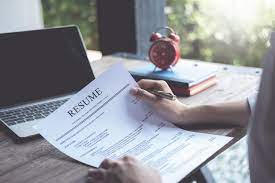The length of your resume will depend on a few factors, including your experience level and the type of job you are applying for. Generally speaking, most resumes should be kept to one or two pages in length. This ensures that recruiters can quickly review your qualifications, providing them with all the information they need to make an informed decision about whether you are the right fit for the job.
However, there may be some exceptions to this rule depending on your level of experience and the type of position you’re applying for. In this guide, we’ll explore how long a resume should be and discuss when it might be appropriate to exceed one or two pages.
Establishing Your Resume Length
When it comes to the length of your resume, there are no hard and fast rules. Consider the job you’re applying for and the level of experience required to do the job successfully. For entry-level positions or roles that don’t require extensive experience, a one-page resume should suffice. While for more experienced roles – such as management positions or those in technical fields – a two-page resume may be necessary.
Below, we’ll outline the characteristics of resumes at each length to help you decide which is right for your situation. It’s always better to hire a professional resume writing service.
One Page Resume
A one-page resume is ideal for those with limited experience. This type of resume should focus on key achievements and work history, while leaving out any irrelevant information. Keep in mind that the employer will likely not read your entire one-page resume in detail, so make sure you include only the most pertinent facts about yourself to pique their interest.
Two Page Resume
For more experienced professionals, a two-page resume is usually acceptable. This allows you the space to include more information about your skills, expertise and accomplishments. If you have an extensive work history or relevant certifications and qualifications, a two-page resume can provide recruiters with maximum information about yourself. However, if your experience level and qualifications don’t justify a two-page resume, you should aim to keep it as concise as possible.
When To Use A Longer Resume?
In some cases, a longer resume may be appropriate. If you have an extensive work history and numerous accomplishments that are relevant to the position you’re applying for, a three-page resume can provide recruiters with enough information to make an informed decision. Additionally, if the job you’re applying for requires more detailed information regarding your qualifications and experiences, a longer resume can be beneficial.
However, while a longer resume may be appropriate in some cases, it’s important to remember that recruiters have limited time and will likely only spend a few seconds reviewing your resume. Therefore, it’s important to ensure that the information included on your resume is relevant and concise.
Factors On Which Length Of Resume Depends
• Level of experience:
The length of your resume should depend on the level of experience you possess. For example, entry-level candidates can usually get away with a one-page resume, while more experienced professionals may need to use two pages.
• Type of job:
Different jobs will require different levels of detail in a resume. If you are applying for a technical position, for example, you may need to include more detailed information about your qualifications and experience. In this case, a two-page resume would be more appropriate.
• Applicant tracking systems:
Some employers use applicant tracking systems (ATS) to manage job applications. These systems scan resumes for specific keywords and phrases related to the job. If your resume exceeds two pages, it may be difficult for the ATS to locate all of your relevant keywords and phrases in a timely manner.
• Company culture:
Every company has its own unique culture and preferences when it comes to resumes. Research the company you’re applying to and determine if they have any specific preferences when it comes to resume length.
As a general rule of thumb, aim for one or two pages in your resume. However, you may need to adjust this based on the factors outlined above. Above all, focus on quality over quantity and make sure that all the information included is relevant and accurate.
Wrapping Up
Ultimately, the length of your resume should be determined by yourself. Most resumes should be kept between one and two pages in length, but there may be some exceptions depending on your qualifications and experience. When deciding how long your resume should be, consider the job requirements and ensure that all information included is relevant to the position. Doing this will help you create a resume that captures the attention of recruiters and increases your chances of landing an interview.
Good luck!



